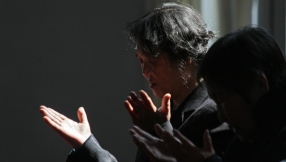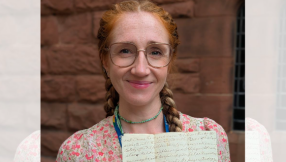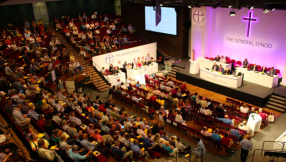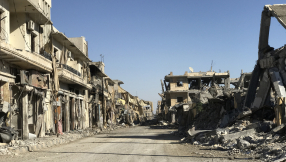Kenya protest violence spreads
On the last of three days of protests, police said a man from President Mwai Kibaki's Kikuyu tribe was shot with an arrow when he ran into a group of Maasai.
Maasai and Kikuyu had been fighting in the Narok area since Thursday with homes and shops burned and at least 23 wounded, the police said.
"The man bumped into a group of armed Maasais who shot him with a poison arrow," Narok area police chief Patrick Wambani told Reuters.
The disputed December 27 election unleashed a wave of political and ethnic violence, in which more than 600 people have died.
Kenya's swift slide into crisis has dented its democratic credentials, horrified world powers, scared off tourists and hurt one of Africa's most promising economies.
The Narok death brought to at least nine the number of people who have died in three days of demonstrations called by Raila Odinga's Orange Democratic Movement (ODM) against what he calls Kibaki's stolen victory in the election.
Protests also resumed on Friday in the western opposition stronghold of Kisumu where more than 300 youths set fire to a fuel tanker to block the road.
"We burned a tanker and blocked the road as a start of on ongoing demonstrations. Nobody is allowed to work ... we will continue demonstrations until we paralyse Kibaki's government" said Crossborne Orina, 19, a bicycle taxi rider.
END OF DEMONSTRATIONS
ODM, which accuses police of shooting peaceful protesters, said earlier it would call off street protests after Friday and switch its campaign to small strikes and boycotts of companies run by Kibaki allies.
"These last three days have been very painful and we have seen a lot of needless deaths and suffering ... but today is the last day of the protests and we are now going to move on," ODM spokesman Salim Lone said.
He said the boycotts would be to "weaken the hardliners and strengthen the moderates". He mentioned Brookside Dairies, Equity Bank and CityHoppa Buses as possible targets.
A likely flashpoint on Friday was the mostly Muslim coastal resort of Mombasa and central Nairobi when worshippers emerged from mosques.
Odinga's supporters have already fought running battles with police in Mombasa.
On Thursday, Odinga said officers killed seven people in Nairobi "whose only crime was jumping up and down excitedly."
Police deny targeting anyone and say the security forces have shot only looters and rioters who attacked them.
Police spokesman Eric Kiraithe said Odinga's statement ignored violence caused by his supporters.
"It does not attempt to explain the current state of ruin in Kisumu city neither does it explain why thousands of citizens have turned into refugees in their own country," Kiraithe said in a statement.
The government accuses ODM of organising attacks against tribes and people seen as backing Kibaki.
The authorities banned the street rallies despite calls from Western nations, including the United States and Britain, for it to allow peaceful protests.
The government says it feared rallies would degenerate into looting and rioting.
Both sides accuse the other of rigging during the election, which international observers say fell short of democratic standards.













